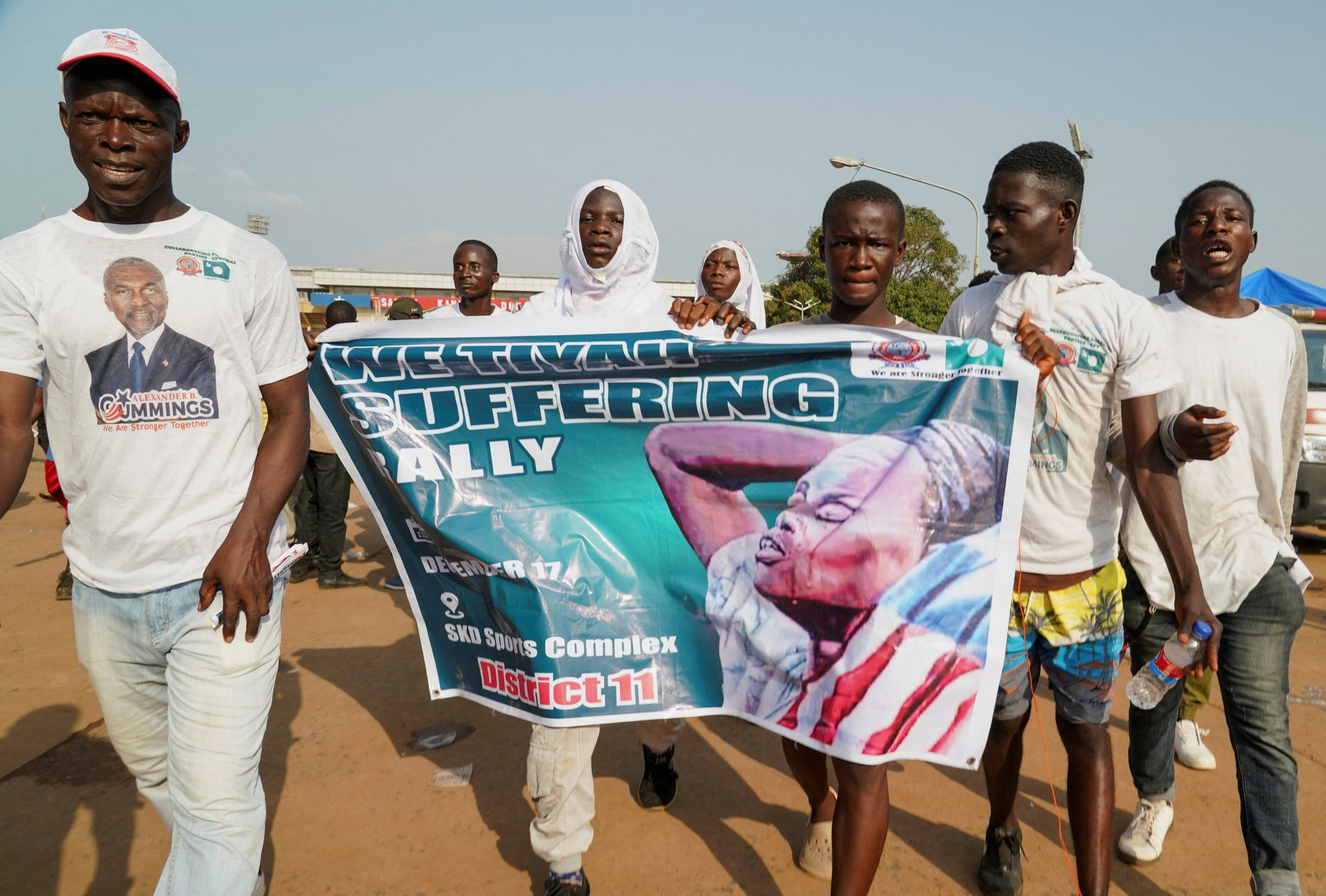Liberian president's home return after 48 days was graced by demonstrations
President George Weah's absence has been widely criticized as neglect at a time when his nation is facing economic hardships.

Liberia’s president George Weah is back in the country since he left on Nov. 1 only to find demonstrations in the capital Monrovia over the rising cost of living.
Suggested Reading
Weah went on trips he said were in the country’s interests in Morocco, Egypt, and France, before traveling to watch his son play in the US soccer team at the World Cup in Qatar, and then attending the US-Africa Business Summit in Washington.
Related Content
But as he watched with joy as his son Timothy Weah score against Wales at the Ahmad bin Ali Stadium, millions of Liberians going through tough economic times were emotionless. This is thanks to rising inflation that has seen the price of rice—the country’s staple food—double from $13 per 25 kg bag in 2021 to $25 in October.
Weah, Africa’s only Ballon d’Or winner, would later tweet that night that his son made him a “proud father” but citizens at home kept demonstrating over tough economic times.
Weah’s seven-week absence from the affairs of his nation has been widely criticized, with one opposition leader joking that the west African nation is running on auto-pilot.
With placards inscribed “We tiyah [are tired of] suffering,” hundreds of protesters from the country’s opposition chanted demonstration songs as they marched to the Samuel Kanyon Doe Sports Complex in Monrovia.
Weah’s long stay out of his country which has earned him the moniker “the absent president,” is a far cry from his promise to save the country from economic turmoil through job creation, and fighting corruption when he took power in 2018. In June 2019, thousands of Liberians took to the streets of Monrovia, to protest rising food prices and corruption.
Liberia’s economy is struggling
The World Bank estimates that 34.6% (pdf) of Liberia’s population lives below the international extreme poverty line ($1.90 to $2.15 per person per day) compared to 27.6% in 2016. Corruption perceptions watchdog Transparency International ranks Liberia 136th out of 180 countries.
“Weah has not performed to the expectation of the majority of the poor people that elected him, he has significantly let the people down,” Ibrahim Nyei, an analyst at the Monrovia-based Ducor Institute for Social and Economic Research told the Financial Times.
Experts have criticized Liberia for its overdependence on foreign aid to develop most of its sectors as it has given the country a false sense of economic growth. Liberia remains one of Africa’s poorest nations.
With a presidential election coming up in October 2023, Weah’s lack of a transformation agenda and political inclusion has led to a loss of public trust in his government, and his re-election is on the line.